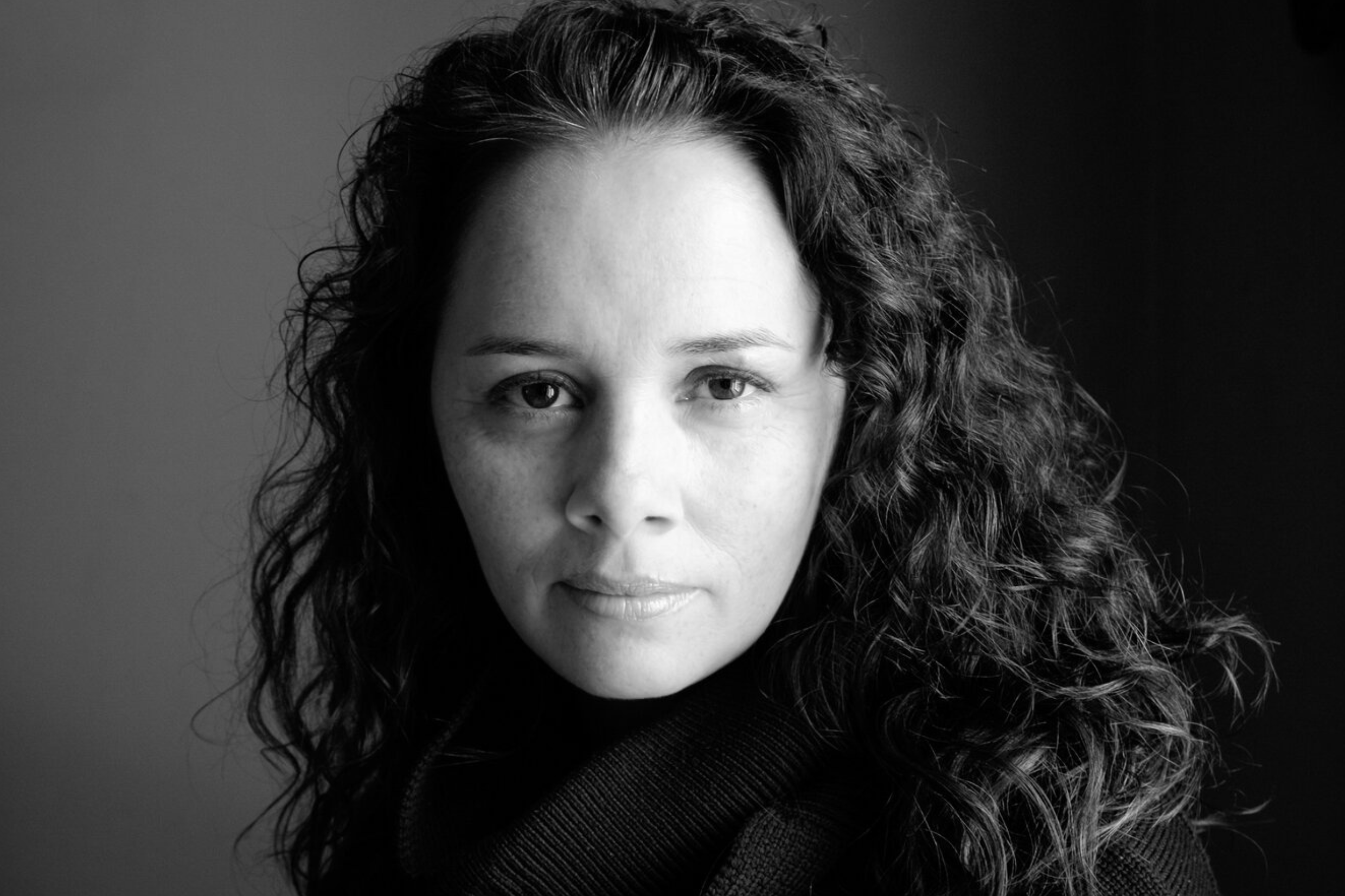
- Details
- By Stacy Thacker
Larrisa Fasthorse found her voice and her superpower through being a playwright.
On April 20, Fasthorse (Sicangu Lakota) became the first Native American woman playwright produced on Broadway with the debut of her original work, "The Thanksgiving Play."
The play — starring D’Arcy Carden, Katie Finneran, Scott Foley and Chris Sullivan— tells the story of four white presenting people attempting to devise a culturally sensitive first Thanksgiving play for Native American Heritage Month. The characters try so hard to do everything right that they do everything wrong, Fasthorse said.
Fasthorse says she wanted to challenge herself to write a play about contemporary Indigenous issues through white presenting characters.
This play is also an opportunity for people to come together and enjoy being in a space where they can share laughter, happiness, joy, and truth, she said.
“I’m really happy with it and how it came out and the things it deals with,” Fasthorse said. “As Native people, a lot of the history that I’m talking about in this play, we know it. It’s not news to us. It’s news to everybody else.”
When Fasthorse started working in film and television 15 years ago, she was frustrated with the inaccurate representation of Indigenous people.
Shows like Rutherford Falls and Reservation Dogs that depict contemporary Native life with Indigenous-specific humor with Native actors weren’t around back then.
“I sold a couple of shows, but they were just getting watered down the way they’re portraying Indigenous people, and I didn’t have the power to change that,” Fasthorse said. “In film and TV, the studios own your work — you don’t. So, they can change whatever they want."
But then Fasthorse was commissioned to do her first play in 2012 and everything took a positive turn.
“I was really excited because the theater was willing to do things right, to hire Indigenous consults, to hire language consultants, hire other Indigenous artists to work around the show,” she said.
Fasthorse grew up in South Dakota, where at a year old, she was adopted by a white family. Her adoptive parents worked to help her keep a connection to her Lakota culture and people.
“But growing up, that’s hard — you are separate, and I always worried about not being enough of anything,” Fasthorse said. “Not being enough white, not being enough Lakota, all the things.”
Not feeling enough and being stuck in between was reinforced when a casting director in California told her it was a problem that she wasn’t quite white — and they could tell.
“Now I realize how much that’s my superpower,” she said. “I’m a bridge. I’m a bridge that can translate between cultures,” she said, adding she can take contemporary and historical issues and translate them for a white audience and weave in Lakota storytelling.
“I was really fortunate as a Native playwright around the country to be working quite a bit, getting commissions and having them produced,” she said. “But then I couldn’t get second and third productions; my plays would just kind of be once and be done.”
The process grew increasingly frustrating, and the fight to hire Indigenous actors also became an issue. But eventually, she says, she cracked the formula, and "The Thanksgiving Play" opened doors.
Fasthorse describes "The Thanksgiving Play" as a dark satirical comedy that depicts historical events accurately.
She added the Indigenous crew found the truth and humor in the story to be a relief.
Although her plays tell historical truths, Fasthorse emphasizes that her primary aim is to create art.
“A lot of my art does educate, but it’s first and foremost art,” she said. “It is not education.”
Her first writing mentor, Merata Mita, a Māori filmmaker, producer and writer from New Zealand who passed away in 2010, told her that she could either be an artist or an educator, Fasthorse said.
“Now, some art educates, and some education is artistic,” Fasthorse said. “But you have to choose which one you are. So, I’m very much an artist.”
Fasthorse encourages Indigenous artists to stay true to who they are/
“Everybody has to find their people and if you aren’t being true to who you are and your voice, your people can’t find you,” Fasthorse said. “Your voice is something they don’t have and if you don’t stay true to that, the people who love what you have can’t find you. If you try to please everyone, you will please no one, including yourself, most importantly yourself.”
More Stories Like This
From Dishwasher to Award-Winning Chef: Laguna Pueblo's Josh Aragon Serves Up Albuquerque's Best Green Chile StewRob Reiner's Final Work as Producer Appears to Address MMIP Crisis
Vision Maker Media Honors MacDonald Siblings With 2025 Frank Blythe Award
First Tribally Owned Gallery in Tulsa Debuts ‘Mvskokvlke: Road of Strength’
Zuni Youth Enrichment Project and Partners at Ho’n A:wan Productions Launch 8th Annual Delapna:we Project
Help us defend tribal sovereignty.
At Native News Online, our mission is rooted in telling the stories that strengthen sovereignty and uplift Indigenous voices — not just at year’s end, but every single day.
Because of your generosity last year, we were able to keep our reporters on the ground in tribal communities, at national gatherings and in the halls of Congress — covering the issues that matter most to Indian Country: sovereignty, culture, education, health and economic opportunity.
That support sustained us through a tough year in 2025. Now, as we look to the year ahead, we need your help right now to ensure warrior journalism remains strong — reporting that defends tribal sovereignty, amplifies Native truth, and holds power accountable.
 The stakes couldn't be higher. Your support keeps Native voices heard, Native stories told and Native sovereignty defended.
The stakes couldn't be higher. Your support keeps Native voices heard, Native stories told and Native sovereignty defended.
Stand with Warrior Journalism today.
Levi Rickert (Potawatomi), Editor & Publisher

